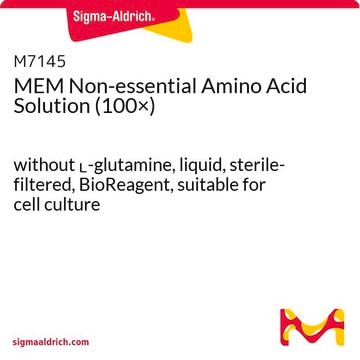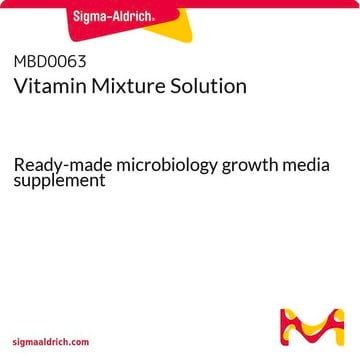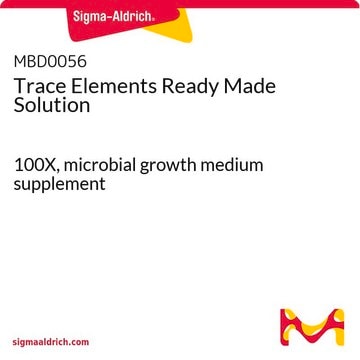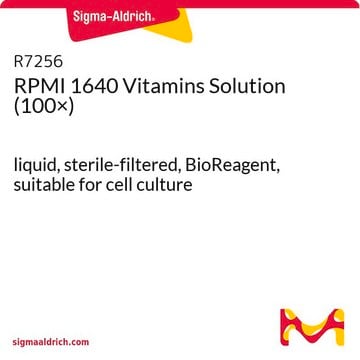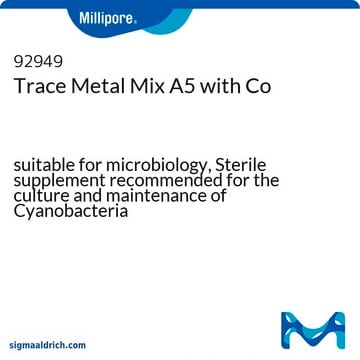M6895
MEM Vitamin Solution (100×)
sterile-filtered, BioReagent, suitable for cell culture
Synonyme(s) :
MEM media, MEM vitamin solution
About This Item
Produits recommandés
Stérilité
sterile-filtered
Niveau de qualité
Gamme de produits
BioReagent
Forme
liquid
Technique(s)
cell culture | mammalian: suitable
Impuretés
endotoxin, tested
Couleur
yellow to dark yellow
pH
7.0-8.0
Application(s)
agriculture
Conditions d'expédition
dry ice
Température de stockage
−20°C
Description générale
Application
- glial conditioned medium for primary neuronal culture
- in Luria-Bertani (LB) medium or minimal medium (MM)
- in private medium (PM = aminoacid-starved medium) for the Aa deprivation experiments
- In the preparation of DMEM medium (for primary neural cell culture)
- For the maintenance of cell lines in Eagle′s Minimum Essential Medium (the medium is supplemented with MEM Vitamin Solution along with other components)
Adding supplements of vitamins to media stimulates growth and prolongs the viability of cells in culture. This concentrated supplement adds nutrients and reduces the biosynthetic burden on cell in vitro.
Code de la classe de stockage
12 - Non Combustible Liquids
Classe de danger pour l'eau (WGK)
WGK 1
Point d'éclair (°F)
Not applicable
Point d'éclair (°C)
Not applicable
Certificats d'analyse (COA)
Recherchez un Certificats d'analyse (COA) en saisissant le numéro de lot du produit. Les numéros de lot figurent sur l'étiquette du produit après les mots "Lot" ou "Batch".
Déjà en possession de ce produit ?
Retrouvez la documentation relative aux produits que vous avez récemment achetés dans la Bibliothèque de documents.
Les clients ont également consulté
Notre équipe de scientifiques dispose d'une expérience dans tous les secteurs de la recherche, notamment en sciences de la vie, science des matériaux, synthèse chimique, chromatographie, analyse et dans de nombreux autres domaines..
Contacter notre Service technique
